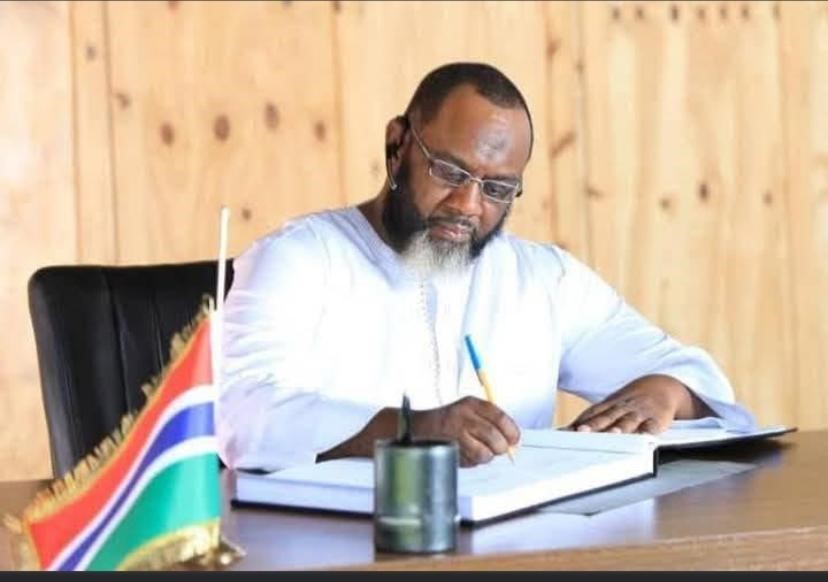By David Kujabi.
The Office of National Security (ONS) in partnership with DCAF convened a day-long meeting of partners supporting the Security Sector Reform (SSR) process of the Gambia Police Force (GPF). The meeting is part of activities under the European Union (EU) funded project Police Project which aims to strengthen the efficiency and accountability of GPF.
ONS, the institution responsible for coordinating inter-ministerial and inter-sectoral (Internal and External) security operations, organised the meeting which brought together international partners supporting SSR of the GPF. These included DCAF-Geneva Centre for Security Sector Governance, Deutsche Gesellschaft für Internationale Zusammenarbeit (GIZ), the United Nations Development Program (UNDP) and the German Police Support Team (GPST).
Discussions during the meeting revolved around GPF Doctrine which outlines its vision, mission and values and outlines the six pillars under the doctrine. These include the police principles and culture, the strategic operational and administrative vision, statutory duties, policing ethos, partnership and integrated actions and accountability and transparency. The doctrine also covers eight key themes which cover public safety and crime reduction, community policing, positive image and capacity building, human rights, gender mainstreaming, resource mobilisation and partnership, intelligence and technology-led partnership and monitoring and evaluation. The doctrine if implemented, will ensure the efficiency and accountability of the force and partners were urged to identify areas of intervention and align their support to one or more outputs of the doctrine.
The partners made presentations on the kind of support they are giving to GPF, and this revealed both the complementarity and duplicity of support. This presents an opportunity for GPF and ONS the opportunity to effectively coordinate support to ensure efficiency and avoid duplicity. Quizzed on the impact of the meeting, Mr Ebrima Bah the Assistant Inspector General of Police for Administration said, “bringing the different partners to discuss what they are doing and what they intend to do gives us an opportunity to see what is being done to help us coordinate the efforts better. It also availed us the opportunity to lay out what we have to see how these could be supported by the partners”.





